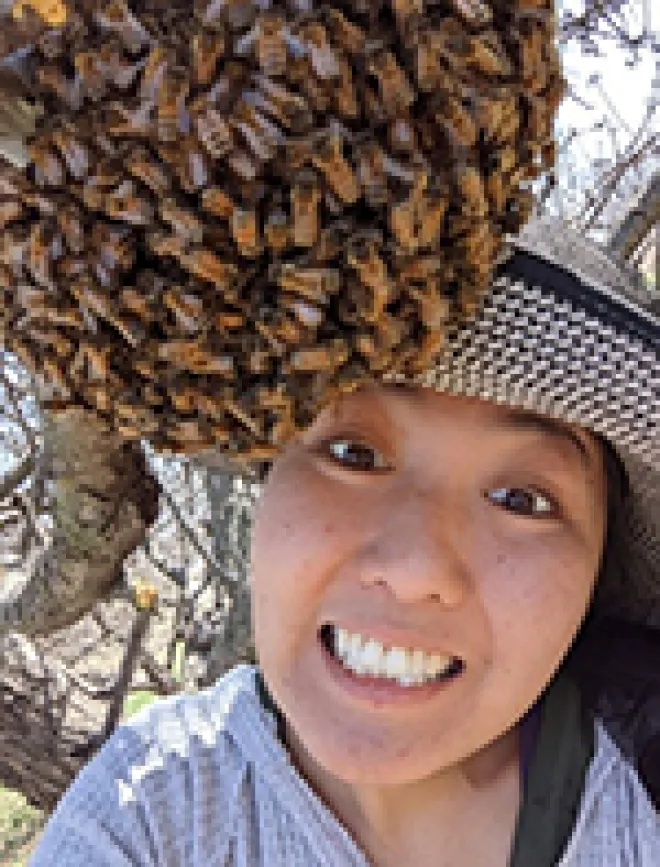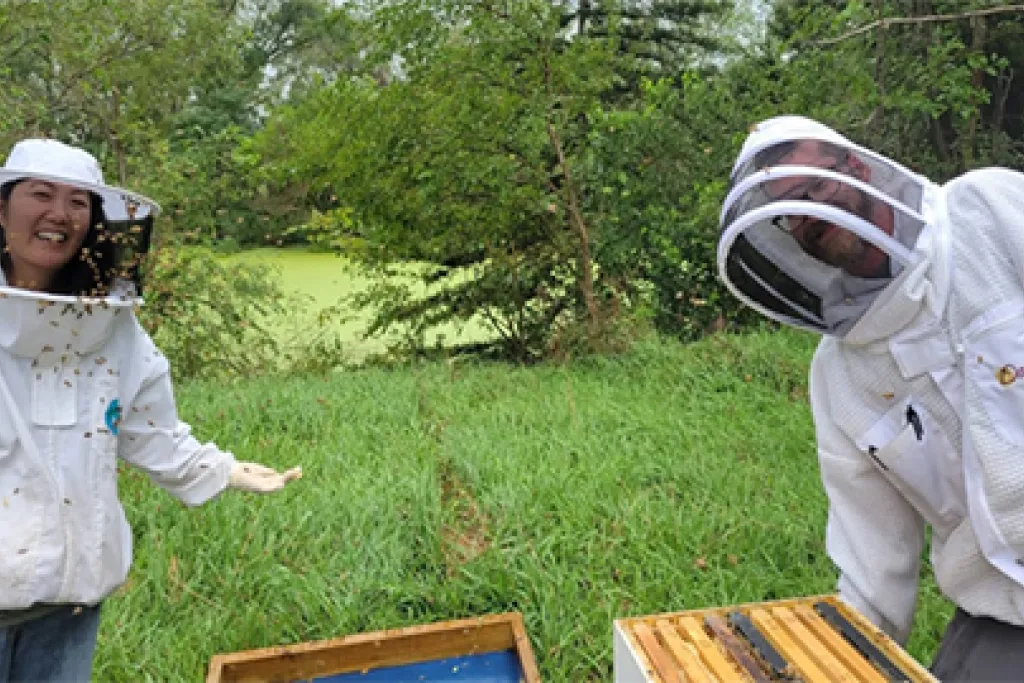In celebration of World Honey Bee Day, USDA’s National Institute of Food and Agriculture (NIFA) is highlighting NIFA-funded researcher Dr. Judy Wu-Smart, associate professor and Extension specialist at University of Nebraska-Lincoln.
Tell us your journey and how your interest in agriculture developed.

I have always been interested in animals, especially weird ones, so as an intern working at the USDA Animal and Plant Health Inspection Service laboratory in Fort Lauderdale, Florida, I discovered entomology, or the study of insects, was just the thing I was searching for. Through that experience I was able to explore the use of insects, or biological control agents, to control invasive pests and weeds. I also developed a strong appreciation for the role pollinating insects, like honey bees, play in securing our food system. During that time, beekeepers began to report about massive losses of honey bee colonies -- Colony Collapse Disorder – a phenomenon to describe previously healthy colonies that rapidly lose workers, leaving behind a weak colony with a neglected queen and offspring. The internship experience, coupled with the alarming need and public messaging to help save the bees, triggered me to seek a graduate degree in entomology, and more specifically to study aspects of bee health, and I haven’t looked back since.
Describe your involvement with NIFA and your role.
I am the recipient of NIFA awards and have served as a primary investigator as well as a collaborator on various research and education projects. Each project has helped build partnerships and opened opportunities to foster new ideas and innovative ways to engage with other scientists, stakeholders and the public.

Could you catch us up on one of your NIFA-funded projects? What is the goal of your project and what impact do you hope it has on your institution and trainees?
Hands-on practical training is a critical component of success for professions that are as tactile and sensory as beekeeping. Therefore, new beekeepers must learn many skills not easily conveyed through lectures, web videos and books. Many experienced beekeepers are willing to become mentors and offer practical training, but do not for several reasons, including the lack of suitable locations to insufficient quantity of hives for teaching purposes. Therefore, our project titled “Great Plains Master Beekeeping Farmer Open Apiaries and Educational Training Kits” aims to help establish teaching apiaries and develop hands-on training kits and demonstration aids to enhance field training and experiential learning for beekeepers that complement existing lectures and web-based materials. The project builds upon the Regional Great Plains Master Beekeeping (GPMB) Program which offers practical training opportunities and resources to over 1,500 beekeepers across six Midwest states. Our overall goal is to improve economic success for beginning and small-scale beekeepers through the enhancement of local partnerships and community-level engagement.
How has the NIFA Beginning Farmer and Rancher Development Program (BFRDP) shaped your professional development as a scientist?
I have a split appointment between research and Extension, which means I spend half my time conducting research related to bee health and the other half of my time engaging with beekeepers, farmers, policy makers and the public about the importance of bees and ways to promote healthy bee systems. The funding received from NIFA has given me the opportunity to try innovative approaches, and it has also allowed me to form great partnerships with many of the local and state beekeeping associations. I have learned just as much from these partnerships as they have from engaging with us, and these interactions have helped form our robust Extension program as well as strengthened and focused our research efforts.
What advice do you have for current students who may be interested in pursuing a similar career path?
I really enjoy both research and Extension aspects of my job, and I find that conducting applied research and building relationships to help disseminate those findings in relevant and useful ways has meaning and purpose. Find what gives you purpose and don’t be afraid to put yourself out there and engage. Engage with your colleagues, partners, and stakeholders but, more importantly, listen and learn from them. Extension is about science communication, and information should flow both ways. And don’t forget to have some fun.
Top photo: Bees swarm Dr. Judy Wu-Smart (left) and pay no attention to Luke Norris, technician, (right) as the two work with their hive. Image provided Dr. Wu-Smart.

